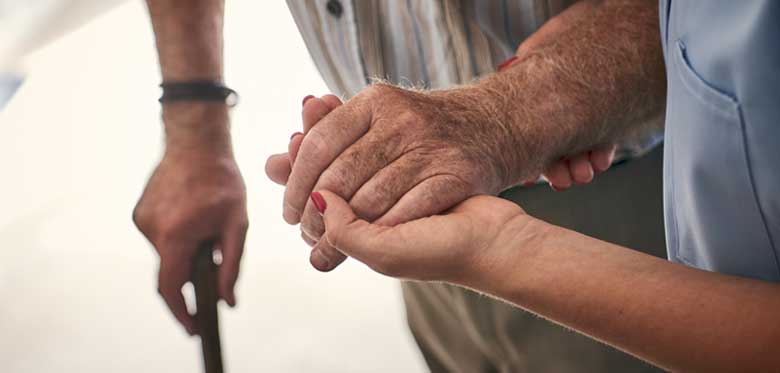The Court of Protection is a specialist court that safeguards the rights of the most vulnerable people in society. With the coronavirus pandemic leading to increased restrictions on vulnerable adults in care settings, including stopping all visits from family and friends, the safeguards afforded by the Court of Protection are more important than ever.
A case involving a ban on contact with a family member in a care home was heard by the Court of Protection on 25 March 2020.
The case related to an 83 year old man (referred to as “BP” in the interests of anonymity) who is deaf and has a diagnosis of Alzheimer’s disease. He has resided in a care home since June 2019, and prior to that, lived at home with his wife. He uses a communication board to communicate, and usually enjoys numerous visits from his family members and friends per week. His daughter usually visits six days a week, his son four times a week, his granddaughters once a week and his wife three times a week.
In response to the coronavirus pandemic, the care home banned all visitors on 20 March 2020. BP’s wife had been to the care home and waved to him through the window, which the family were concerned was confusing for BP as he was unlikely to understand the pandemic and the reason why they were not able to go inside the home.
It is clear that local authorities and care homes should communicate with residents and their loved ones to discuss and implement creative and innovative ways to ensure that contact continues.
Being Deaf, BP was not able to use a telephone, FaceTime or Skype.
BP’s daughter instructed a solicitor and made an application to the Court of Protection on his behalf, arguing that the ban on contact constituted an unlawful interference with BP’s rights (Articles 5 and 8 of the European Convention on Human Rights). She argued that if the ban was to remain in place, she would rather her father moved to her house whilst the restrictions are in place.
The judge decided that moving to live with his daughter in the interim was not a realistic option, and after some discussion, the parties agreed that:
- Training should be provided to BP on Skype, with creative use of a communication board and the use of concurrent instant messaging should be explored
- The family can go to BP’s bedroom window (which is on the ground floor), wave to him and use the communication board to communicate with him and
- To achieve this, “time, effort, and some creativity” will be necessary
The judge commented that this was “a balanced and proportionate way forward which respects BP’s dignity and keeps his particular raft of needs at the centre of the plan”.
And importantly, the judge commented that "In the context of coronavirus, the state's obligation is to ensure equality for people with disabilities and to guard against them being inadvertently left behind by a system which de-prioritises them in the urgency of a response to crisis.”
A complete ban on contact with family members for those in care settings could lead to inequality for those with disabilities. It is extremely important that all efforts be taken by both the relevant local authority and care home to facilitate contact with loved ones using any creative means possible, taking into account the individual’s particular disabilities and needs.
In the event that this cannot be achieved in consultation with family members, the Court of Protection is a safeguard to ensure the protection of the individual’s human rights and enables a decision to be made in the best interests of individuals lacking mental capacity where necessary.If you or a loved one in a care setting are affected by the restrictions put in place by a care provider or local authority, please do not hesitate to contact our Court of Protection team for specialist advice and assistance on 0161 696 6229.




Hi,
Thank you for your comment, our Court of Protection team would be happy to discuss your situation with you, they can be reached directly on 0333 999 7154, alternatively please complete our online enquiry form and a member of the team will contact you directly.
Kind regards
Stephensons
My 76 year old sister has Alzheimer's and the care home in Dorset is forbidding her daughter to visit her. Not even a window visit.
Other care homes in the area are allowing garden and window visits.
The Operations Manager of the Care Home,operated by Shaw Healthcare, said that they are following Government guidelines and visits of any kind are strictly forbidden unless point of death."
I would grateful for your advice. I am aware of the ruling by Justice Hayden which allowed windows visits.
kind regards
Chris Glynn